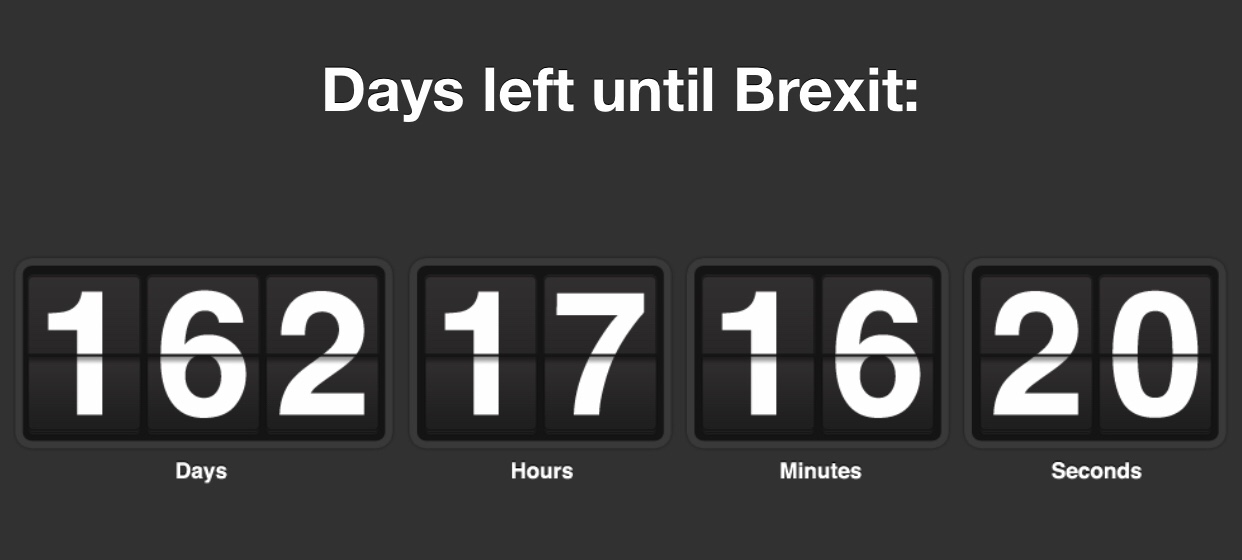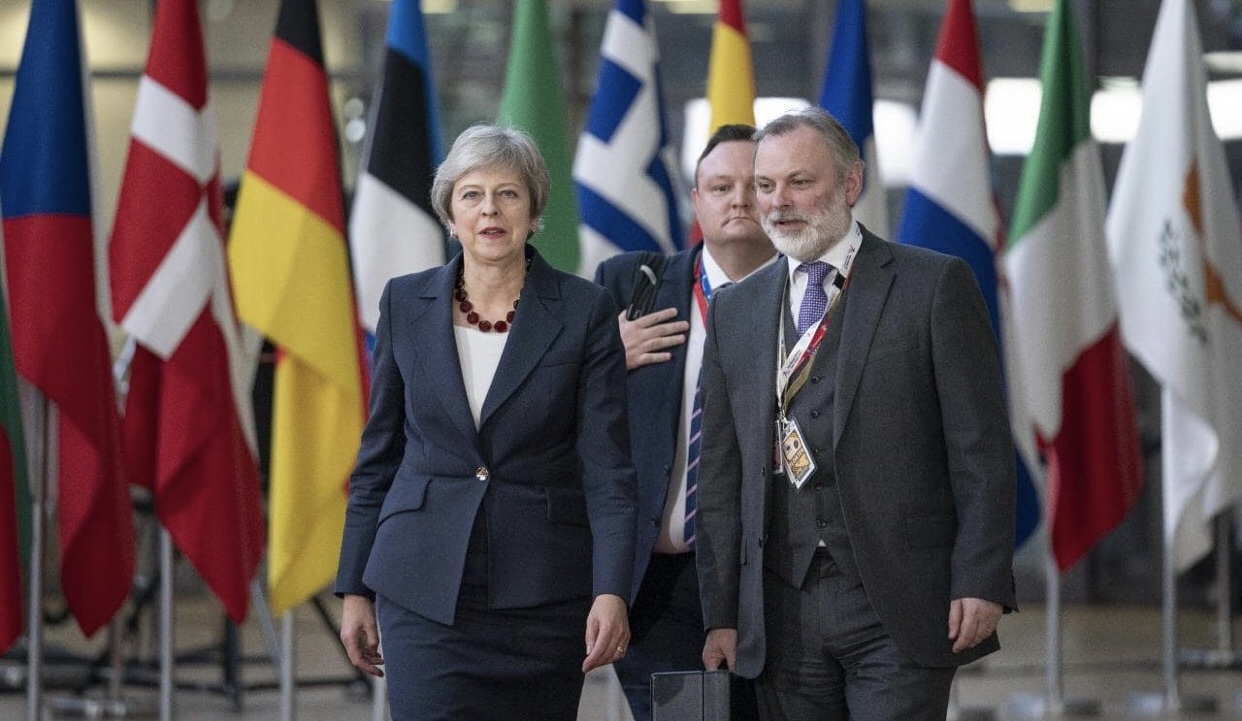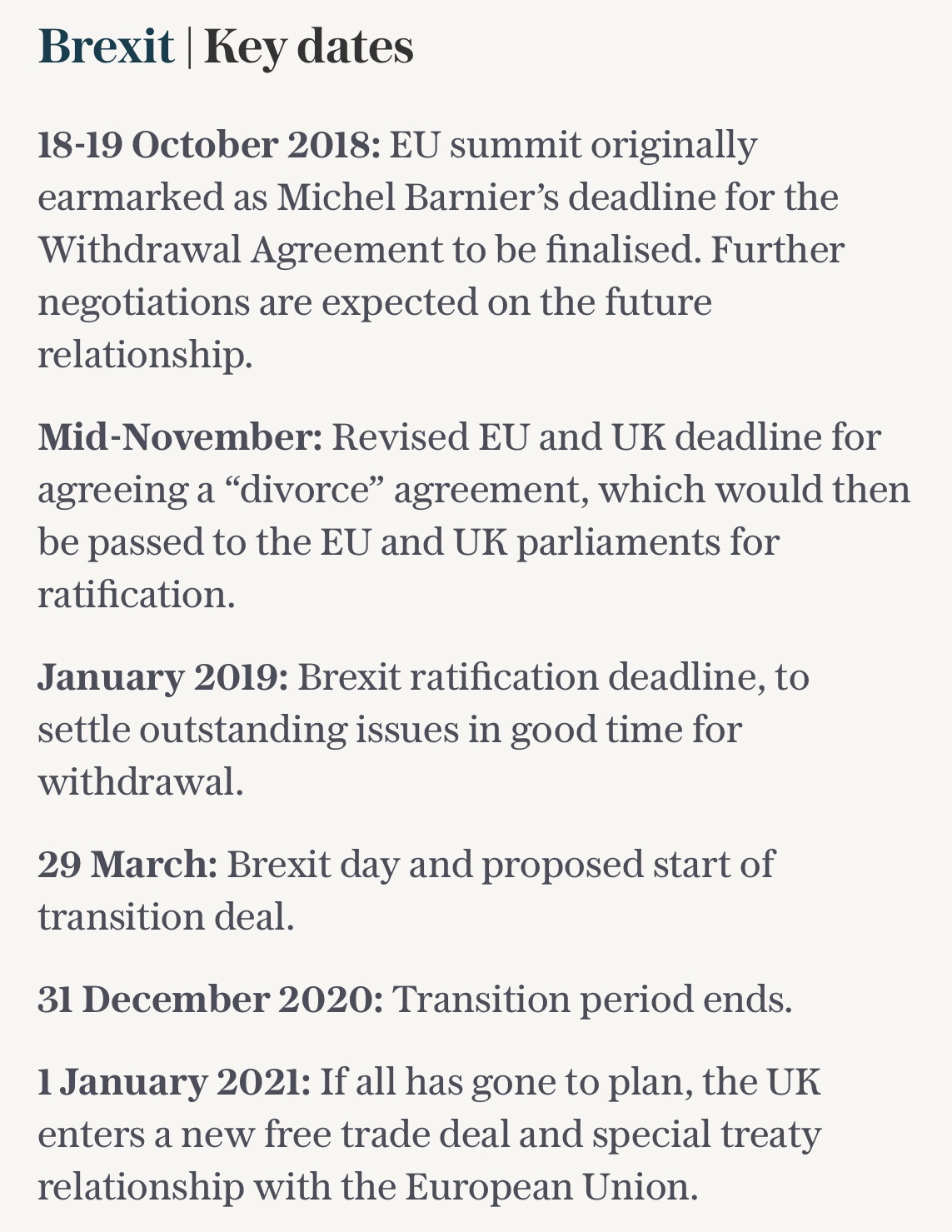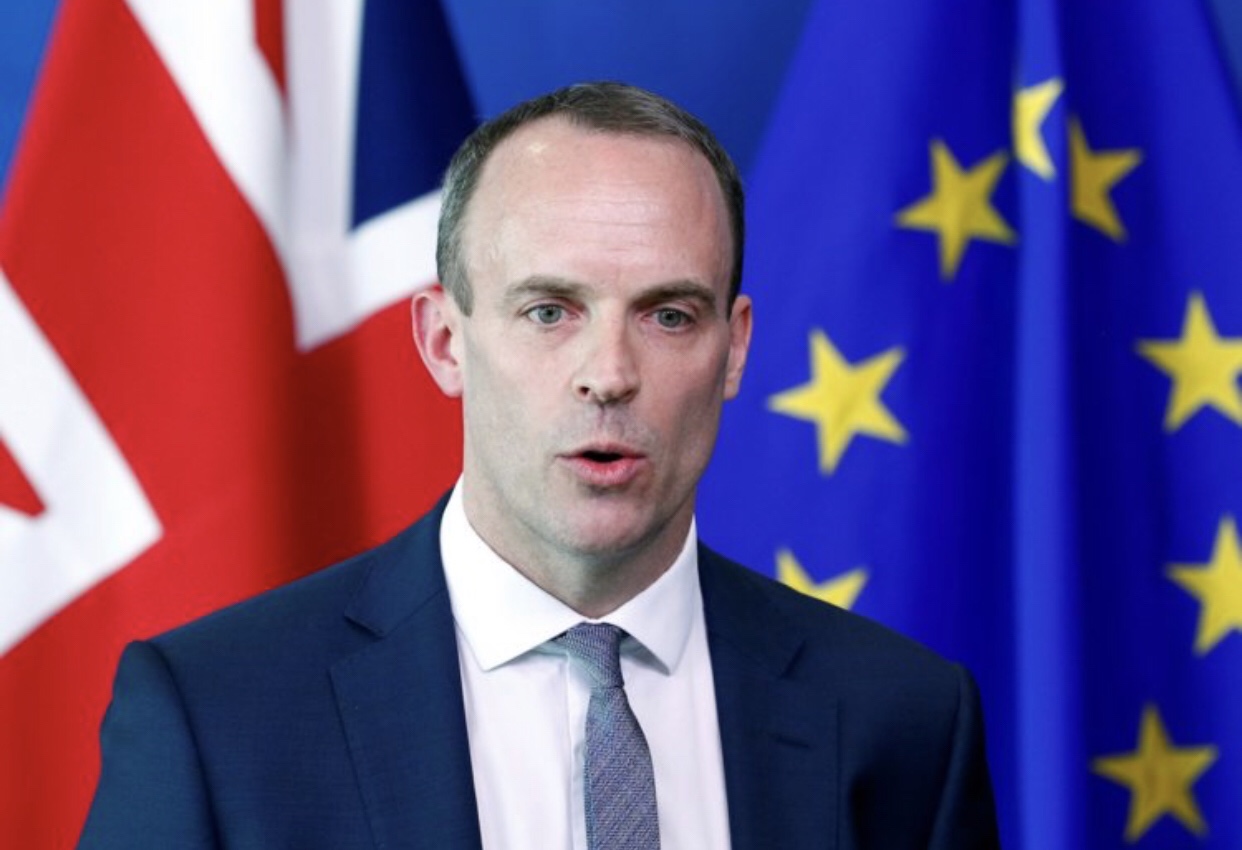Latest on Brexit from the EU meeting
Theresa May has told EU leaders she is prepared to consider extending the Brexit transition period as she called on them to show “courage” and come up with “creative” ideas to break the current deadlock.

At a summit in Brussels the Prime Minister said Britain would be open to the idea of staying tied to the EU beyond the end of December 2020, even though that could mean paying billions more to Brussels.
Last week the Telegraph revealed that Michel Barnier, the EU’s chief negotiator, had proposed extending transition by another year, to the end of 2021, to allow more time for a trade deal to be worked out.

On Wednesday Mr Barnier said “much more time” was needed to find a solution to the Irish border problem, and extending the transition period could help defuse the row over the current backstop solution.
However Eurosceptics have already reacted with fury to the idea, pointing out that it would cost between £6 billion and £14 billion in extra payments to the EU.
It came as five former Cabinet ministers, including Boris Johnson and David Davis, warned the Prime Minister that she will not be forgiven by the British people if Brexit is reduced to a “choreographed show of resistance followed by surrender”.
Mrs May spent around 20 minutes addressing the other 27 EU leaders in Brussels on Wednesday night, during which the idea of an extended transition period was discussed, according to senior EU officials.
Antonio Tajani, the European Parliament president, said: “It was mentioned. Both sides mentioned the idea of an extension of the transition period as one possibility which is on the table and would have to be looked into.”
A senior EU official said: “She mentioned the transition period. She said the UK would be ready to consider the extension of the transition period.”
Mrs May tried to shift the onus on to her counterparts by saying they needed to find “creative solutions” to the Northern Irish border problem.
In a comment that will be interpreted as a reference to Vladimir Putin, she also reportedly pleaded with them to agree a deal because otherwise “those outside the EU will claim the current world order is crumbling, they will cheer and we don’t want them to do that”.
However, the other 27 leaders tried to throw the ball back into her court, with one saying it was “very difficult” to negotiate with her because she does not have a “strong mandate” and the British “do not know what they really want”.
Mrs May said she remained “confident” of a deal being done, but the chances of a November summit being convened to sign off a deal appeared to vanish.
Luxembourg’s Prime Minister Xavier Bettel said he was not willing to come back in November “just to have a cup of coffee and some shortbread”, while Leo Varadkar, the Irish Taoiseach, said: “I don’t think we should call a summit just to talk.”
This week’s summit had been described by Donald Tusk, the president of the European Council, as a “moment of truth” for Brexit, but in reality Mrs May arrived with little or no expectation of a breakthrough being made.
With both sides entrenched in their positions over alternative plans for a backstop plan if no agreement can be reached over the Northern Irish border, Mr Barnier, the EU’s chief Brexit negotiator, said: “Brexit must be orderly…so we need time, we need much more time and we continue the work in the next weeks calmly and patiently, calmly and patiently.”
Mrs May told the EU27 that: “We have shown we can do difficult deals together constructively – I remain confident of a good outcome.
“The last stage will need courage, trust and leadership on both sides.” A senior UK official added that Mrs May’s message was: “We need to find creative ways out of this dilemma.”
Mr Tajani said: “There was a message of goodwill and readiness to reach an agreement, but I didn’t perceive anything substantially new in terms of content as I listened to Mrs May.”
Dalia Grybauskaitė, Lithuania’s Prime Minister, said: “We need a very concrete understanding what the UK really wants.

To stay one leg on the continent and one leg in UK not possible. “We do not know what they want, they do not know themselves what they really want – that’s the problem.
“We have time, I think the UK has less time. It’s very difficult for European side to negotiate with a person who has no full support of the position.
“If you have on the other side of the table negotiator who has no strong mandate it’s very difficult to negotiate.”
The German Chancellor Angela Merkel said she would “always try everything to find an agreement”, and the Dutch premier Mark Rutte said: “I do think that over the coming weeks we should get there.”
Earlier, Jeremy Corbyn asked Mrs May in the Commons if her Chequers plan for Brexit “is now dead” after she failed to mention it by name in her party conference speech or at any point since.
She replied: “The answer is no.”
While Mrs May attended what was originally perceived to be a pivotal summit for outlining the future of Brexit, Eurosceptic MPs – including Mr Johnson and Mr Davis in their first joint intervention since quitting cabinet – urged her to change course by reversing her Chequers proposal and resetting negotiations while she still has the chance.
In a letter they called on the Prime Minister to abandon her “unpopular” Chequers plan, which would tie Britain to European standards on goods.
The letter, also signed by Iain Duncan Smith, the former Work and Pensions Secretary, Priti Patel, the former International Development Secretary, and Owen Paterson, as well as Jacob Rees-Mogg, said: “It has been formally rejected by the EU, it is opposed by over 400 MPs, and it is less popular with the public than the Poll Tax.”
“Anything other than straightforward approval of the deal will bring with it huge uncertainty for business, consumers and citizens.”
Dominic Raab
The Prime Minister wants the whole of the UK to remain in a customs union during the backstop period, while the EU has suggested that only Northern Ireland only should remain in a customs union and single market, creating a border in the Irish Sea.
It later emerged that Leo Varadkar, the Irish prime minister, showed EU 27 leaders a news story about a 1972 IRA bombing of a border customs post, which murdered eight people, in Wednesday’s Irish Times.
The message was clear; he wanted to impress upon them the crucial importance of the Irish border issue.
The story was headlined “If Brexit brings the violence back, they will be younger and they will have no fear becuase they won’t remember”, which was a quote from a daughter of a victim of the terror attack.

Separately, Dominic Raab, the Brexit Secretary, suggested the Government will try to block any amendments to the final, meaningful vote on Brexit. Remainers are expected to try to use the vote to halt Brexit.
He said that the decision must be “unequivocal”, adding: “Anything other than straightforward approval of the deal will bring with it huge uncertainty for business, consumers and citizens.”
Mrs May will on Friday take part in a conference call with 150 business leaders to brief them on the latest from the Brexit talks.
Source: The Telegraph
You must be logged in to post a comment.